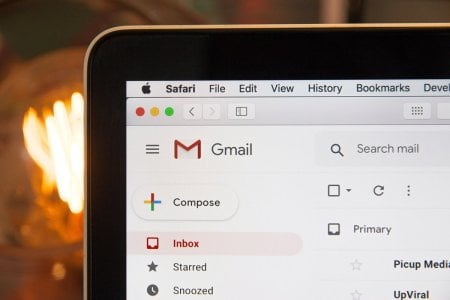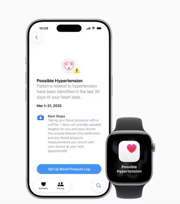Is your Gmail account about to be deleted? Find out if you're one of the millions at risk
The internet has become an essential part of our lives, especially Google, which provides us with valuable services facilitating communication and sharing.
Given its vast user base, it's expected that Google takes measures to maintain a secure platform for everyone.
However, Google's announcement about deleting thousands of Gmail user accounts has drawn criticism from the public.
In December, Google will start deleting millions of inactive Gmail accounts, marking a change in its policy on dormant users.
This applies to Gmail accounts that have remained dormant for more than two years.
Alongside Gmail, users with Google Drive, Docs, Calendar, Meet, and Google Photos accounts will also face deletion if they haven't seen recent activity, along with all their associated content.
Accounts on the chopping block will receive multiple notifications in the months preceding their removal.
Google justifies this change as a necessary step to mitigate the risk of inactive accounts falling into the hands of cybercriminals, who could exploit them for spam or other malicious activities.
The cleanup, initially disclosed in May, will kick off with accounts that were created but never used, such as those utilised for free trials.
To keep your account, ensure it stays active at least once every two years. This could include reading or sending an email, watching a YouTube video (if this is connected to your Google account), using Google Search, or accessing Google Drive.
For those storing images on Google Photos, logging into the service separately is essential to prevent the permanent deletion of photos.
Accounts that have YouTube videos uploaded are permanently considered active and will not be deleted.
Subscribers to services such as news publications or apps through their Gmail accounts need not worry about deletion as well.
Vice President for Product Management Ruth Kricheli asserted that this change is imperative to ‘protect our users from security threats, like spam, phishing scams, and account hijacking’.
Google's internal analysis indicates that forgotten or neglected accounts are more prone to compromise, given their reliance on outdated or reused passwords and a tenfold lower likelihood of having two-factor authentication.
Kricheli warned: ‘These accounts are often vulnerable, and once an account is compromised, it can be used for anything from identity theft to a vector for unwanted or even malicious content, like spam.’
Video source: YouTube/WGN News
Recent findings reveal that hacked Gmail accounts are traded on the dark web for as little as $92 (£49).
To prevent the risk of being locked out, Google recommends setting up a recovery email.
Additionally, users can download and export their account data to other platforms through the Takeout feature, enabling a comprehensive backup.
Through the Inactive Account Manager, users retain control over the fate of their unused accounts.
Options include sending specific files to trusted contacts, complete deletion of the account, or establishing an automatic reply system.

Members, what do you think of this story? Share your thoughts in the comments below!
Given its vast user base, it's expected that Google takes measures to maintain a secure platform for everyone.
However, Google's announcement about deleting thousands of Gmail user accounts has drawn criticism from the public.
In December, Google will start deleting millions of inactive Gmail accounts, marking a change in its policy on dormant users.
This applies to Gmail accounts that have remained dormant for more than two years.
Alongside Gmail, users with Google Drive, Docs, Calendar, Meet, and Google Photos accounts will also face deletion if they haven't seen recent activity, along with all their associated content.
Accounts on the chopping block will receive multiple notifications in the months preceding their removal.
Google justifies this change as a necessary step to mitigate the risk of inactive accounts falling into the hands of cybercriminals, who could exploit them for spam or other malicious activities.
The cleanup, initially disclosed in May, will kick off with accounts that were created but never used, such as those utilised for free trials.
To keep your account, ensure it stays active at least once every two years. This could include reading or sending an email, watching a YouTube video (if this is connected to your Google account), using Google Search, or accessing Google Drive.
For those storing images on Google Photos, logging into the service separately is essential to prevent the permanent deletion of photos.
Accounts that have YouTube videos uploaded are permanently considered active and will not be deleted.
Subscribers to services such as news publications or apps through their Gmail accounts need not worry about deletion as well.
Vice President for Product Management Ruth Kricheli asserted that this change is imperative to ‘protect our users from security threats, like spam, phishing scams, and account hijacking’.
Google's internal analysis indicates that forgotten or neglected accounts are more prone to compromise, given their reliance on outdated or reused passwords and a tenfold lower likelihood of having two-factor authentication.
Kricheli warned: ‘These accounts are often vulnerable, and once an account is compromised, it can be used for anything from identity theft to a vector for unwanted or even malicious content, like spam.’
Video source: YouTube/WGN News
Recent findings reveal that hacked Gmail accounts are traded on the dark web for as little as $92 (£49).
To prevent the risk of being locked out, Google recommends setting up a recovery email.
Additionally, users can download and export their account data to other platforms through the Takeout feature, enabling a comprehensive backup.
Through the Inactive Account Manager, users retain control over the fate of their unused accounts.
Options include sending specific files to trusted contacts, complete deletion of the account, or establishing an automatic reply system.
Key Takeaways
- Millions of inactive Gmail accounts will be deleted from December as Google changes its rules on user activity.
- Google Drive, Docs, Calendar, Meet, and Google Photos accounts that have not been active recently will also be deleted, along with all their content.
- Google advises maintaining activity at least once every two years and setting up recovery emails to prevent account deletion.








